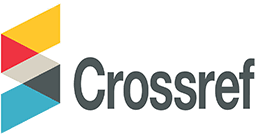Digital teaching skills and their relationship with university dropout
Structural model: case study
DOI:
https://doi.org/10.51896/ce.v22i1.373Keywords:
Digital teaching skills, university dropoutAbstract
University dropout, with its complexity of causes, has become a crucial issue, especially in the context of the pandemic. This study specifically addresses the relationship between the lack of teaching digital skills and dropout at UTESA-Corporate System during the Covid-19 crisis. Adopting an ex post facto approach and an explanatory associative strategy, 322 teachers and 373 dropout students were surveyed. Both groups were selected from broader populations, and surveys with multiple choice questions and Likert scales were administered. The analysis was based on a relational structural model with 9 constructs and 16 hypotheses, supported in part by statistical tools such as SMART-PLS v4.0 and SPSS v29.1. The conclusions highlight that the lack of digital skills in teachers significantly impacts student dropout, attributing this to insufficient training in the use of digital media. This lack contributes to students' low motivation and negative attitude toward the learning process, underscoring the need to strengthen teaching digital skills to improve student retention.
Downloads
References
Colás-Bravo, P., Conde-Jiménez, J., y García-Peñalvo, F. J. (2018). Incompetencias digitales docentes en uso de las Tics. Recuperado en: doi: https://doi.org/10.1007/978-3-319-39483-1_18
Dijkstra, T.K. & Henseler, J. (2015). Consistent and asymptotically normal PLS estimators for linear structural equations. Computational Statistics & Data Analysis, 81(1), 10-23.
Dillon, W. R., y Goldstein, M. (1984). Puntuación compuesta como un método para la estimación del constructo: presente y futuro. Journal of Educational Measurement, 21(4), 331-340.
García y Romero (2015). Falta de compromiso por los alumnos en el proceso educativo. Recuperado en: https://www.redalyc.org/articulo.oa?id=44741347010
García-Martínez y González-Martínez. (2020). Habilidades digitales docentes en la calidad educativa. Recuperado de: DOI: https://doi.org/10.6021/educatio.463821
Geisser, S. (1975). The predictive sample reuse method with applications. Journal of the American statistical Association, 70(350), 320-328.
George, D., & Mallery, P. (2003). SPSS for Windows step by step: A simple guide and reference. 11.0 update (4thed.). Boston: Allyn & Bacon.
González, O., & Flores, M. (2019): El trabajo docente: enfoques innovadores para el diseño de un curso. Ed. Trillas, México.
González-Gómez, F., Guardiola, J., Martín-Rodríguez, O. and Montero-Alonso, M.A. (2012) Gender Differences in E-Learning Satisfaction. Computers & Education, 58, 283-290. https://doi.org/10.1016/j.compedu.2011.08.017
González-Ramírez, Chávez-Rivera y García-Fernández (2019). Factores externos que causan deserción en la Educación Superior. Recuperado en: https://static.sevier.es/jano/estresyrendimiento.pdf
Henseler, J., Hubona, G., & Ray, P.A. (2016). Using PLS path modeling in new Technology research: updated guidelines. Industrial Management & Data Systems, 116(1), 2-20.
Henseler, J., Ringle, C. M., & Sinkovics, R. R. (2009). The use of partial least squares path modeling in international marketing. Advances in International Marketing, 20, 277-319.
Higuera, A. y Rivera (2021). Rendimiento Académico en Ambientes Virtuales del Aprendizaje Durante la Pandemia Covid-19 en Educación Superior. https://preprints.scielo.org/index.php/scielo/preprint/view/2862/version/3022.
Karsenti y Collin (2013). Herramientas y recursos digitales. Apertura: Revista de Innovación Educativa, ISSN-e 2007-1094, ISSN 1665-6180, Vol. 4, Nº. 2, 2013.
Lázaro-Cantabrana, (2018), Rúbrica para evaluar la competencia digital del profesor universitario en el contexto latinoamericano. Edutec: Revista electrónica de tecnología educativa, ISSN-e 1135-9250, Nº. 63, 2018, págs. 1-14.
López-González, Ruiz-Lozano y Murillo-Rodríguez (2018). Impacto de la Covid19 en la motivación de los docentes. DOI: https://doi.org/10.6018/cpd.4923241.
Robbins, Oh, Le y Button (2009). Intervention Effects on College Performance and Retention as Mediated by Motivational, Emotional, and Social Control Factors: Integrated Meta-Analytic Path Analyses. Recuperado de: DOI:10.1037/a0015738
Ryan y Deci (2000). Factores de la teoría motivacional de auto determinación. Recuperado de: https://core.ac.uk/download/pdf/6348452.pdf
Shmueli, G., & Koppius, O. R. (2011). Predictive analytics in information systems research. MIS Quarterly, 35(3), 553-572.
Smith, J. (2020). Competencias digitales docentes y su impacto en la deserción universitaria. En S. García (Ed.), Tecnologías digitales en la educación: Perspectivas y desafíos (pp. 45-60). Editorial Universitaria.
Stone, M. (1974). Cross-validation and multinomial prediction. Biometrika, 61(3), 509-515.
Torres, D, Rincón A y Medina, L (2020). Competencias digitales de los docentes en la Universidad de los Llanos, Colombia. Recuperado de: DOI: https://doi.org/10.22430/21457778.2246.
UNESCO. (2017). Educación en tiempos de COVID-19. Disponible en: https://es.unesco.org/covid19/educationresponse.
Wang, Q., Chen, W. and Liang, Y. (2011) The Effects of Social Media on College Students. Johnson & Wales University, Providence, RI.
Published
Versions
- 2024-04-11 (2)
- 2024-03-14 (1)
How to Cite
Issue
Section
License
Copyright (c) 2024 Bernardino Esteban Madera Fernández

This work is licensed under a Creative Commons Attribution-NonCommercial 4.0 International License.
Usted es libre de:
- Compartir — copiar y redistribuir el material en cualquier medio o formato
- Adaptar — remezclar, transformar y construir a partir del material
Bajo los siguientes términos:
-
Atribución — Usted debe dar crédito de manera adecuada, brindar un enlace a la licencia, e indicar si se han realizado cambios. Puede hacerlo en cualquier forma razonable, pero no de forma tal que sugiera que usted o su uso tienen el apoyo de la licenciante.
-
NoComercial — Usted no puede hacer uso del material con propósitos comerciales.















